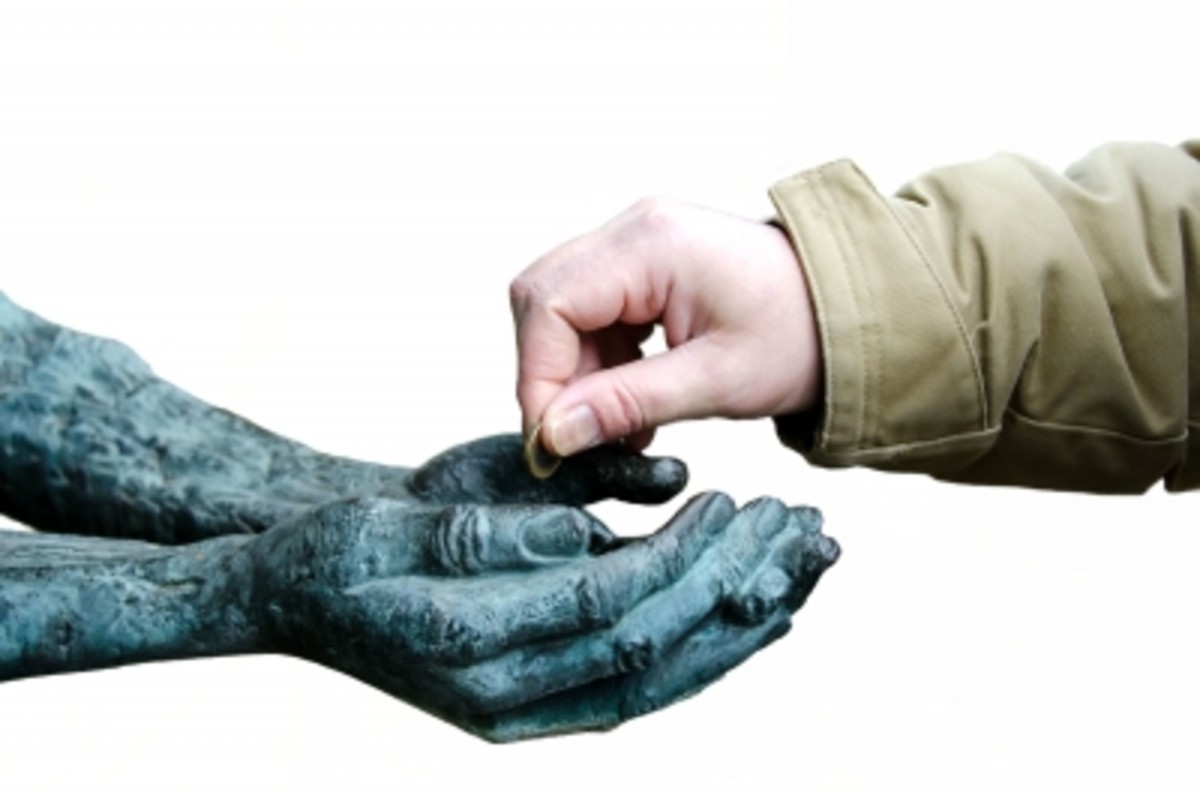Charitable Giving Without Being a Chump
Overview
Charitable giving arises from the noble human intention to help others without direct personal gain. Yet charitable giving attracts fraud, thievery and simple corruption because of the ease of pretending to be in need and the greater emotional weight of dire please for help that cloud the judgment that would otherwise be exercised in a business transaction.
How can you intelligently engage in charitable giving without being a chump for those who would abuse the gift or otherwise waste it?

Solutions to Avoid Being Taken
- Anyone can place a donation button up on a website alongside a desperate plea for help. Limit your giving to those you can verify are truly in need.
- Give in ways that cannot be abused. Donate blood, because it only goes to those who need it. Choose the Angel of Giving / Angel Tree Angel that is asking for food or diapers or child's clothing over the "I want an Xbox". Donate food, since there is less motivation to commit fraud for a free load of groceries than for free money.
- Help charitable institutions become debt free over helping them expand or take on debt. Give money for specific efforts that avoid debt such as a "pay off the church mortgage drive" or "sinking fund to replace the roof" instead of simply writing a check for their daily expenses. However, it may not be a good idea to support new construction efforts if a major project requires the charitable organization taking on a mortgage. Money that could be used to pay utility bills and staff can end up going to make payments on an under-utilized, beautiful building.
- Use charity monitoring websites like Charity Navigator that reveal how efficiently charities use the money they receive. Don't give money to groups that are inefficient and waste money on marketing, overhead or "outreach".
- Don't give to charities that simply funnel money to other charities. These umbrella organizations simply provide jobs for administrators, fund raisers and grant writers before giving money to smaller groups that actually do charity work.
- Focus your effort on tangible benefits for others. Liking charities to increase their social networking profile rarely results in increased donations. Slapping on bumper stickers only helps the charity if you paid money to them for the sticker with proceeds going toward their charitable efforts and not just marketing and printing costs. Ask what others will literally get out of the efforts. Will the money fund medical research, build schools, buy medicines, plant gardens, pay teachers or feed people? Remember that raising awareness can feel good but needs to be directly correlated to a good deed done to be worth your while.
- Don't consider loans to be charitable activities. For example, giving loans through organizations like Kiva may give good, but giving the money to charities without strings like Heifer International may be more beneficial to the needy in the long run.
- The "do not call" list with the FCC does not cover most charities or political campaigns. However, you can inform charities that call you that you not only do not want to donate to them but to remove you from their list. This will reduce future calls begging for money.
- Remember that many charities that call saying they support police and fire fighters typically give very little to the widows and orphans fund. If you want to help fire fighters, take them cookies anytime or holiday meal fixings when they work over Christmas.






